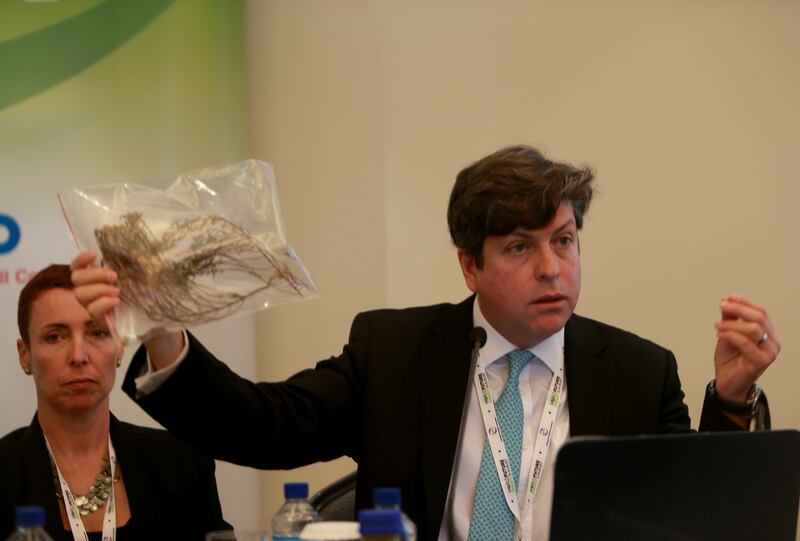ABU DHABI // Construction is soon to start on a facility in the capital that will test a novel concept to jointly produce food and biofuel in a sustainable manner.
The project is based on several years of research at the Masdar Institute of Science and Technology. It is funded through the Sustainable Bioenergy Research Consortium, a collaboration between the institute, Etihad Airways, aircraft manufacturer Boeing and other companies.
The contract to build the facility, which will be located in a 20,000 square-metre plot at Masdar City, has been awarded to International Mechanical and Electrical Company.
The facility is expected to be operational by late summer.
Although producing biofuel from plant oils is not a challenge, growing biofuel crops with minimum environmental impact is. That is why the project, which will rely on seawater, is important, according to Dr Alejandro Rios, the consortium’s director.
“This type of research, I can tell you, is not being done in any of the large universities in the world,” he said. “We are one of the first movers in this field.”
The facility will consist of six saltwater aquaculture ponds where fish and shrimp will be grown.
The nutrients produced in the aquaculture process will be used to grow salt-tolerant crops as the water circulates into eight crop fields.
The scientists are initially looking at cultivating salicornia bigelovii, a salt-tolerant plant commonly known as dwarf glasswort that is not native to the UAE. But the scientists could later consider growing local plants.
From the crop fields the water will be circulated to four man-made swamps where mangroves will filter the remaining nutrients in the water before it is recirculated in the system.
The water will circulate through the system with the aid of solar-powered pumps.
One of the first tasks in the building process will be to line the system so as to avoid interaction with the soil and groundwater at the test site.
This is done to allow the scientists to precisely measure the quality of the water as it moves through from the aquaculture ponds to the fields and the mangrove swamps, answering vital questions about how the different components of the system will interact in real time.
Within the three to five years that the project is intended to run, the team can learn more about the optimal temperature and salinity thresholds for the plants and animals to be produced. Another issue is whether the nutrients produced in the aquaculture plants will be enough to completely replace the use of fertiliser.
A closed-loop system would enable the team to “start playing around with those numbers”, said Dr Rios.
“The fertiliser requirements for the plants will be different depending on the nutrient level that is present in the water, so we are not actually cancelling the option of using fertiliser during the process of growing the salicornia plants. It is just that we do not know yet,” he said.
“The ideal would be that we do not need any fertiliser, that would be the best-case scenario. And if we do need some fertiliser, we need to make sure that it does not leak out to the ocean because that would generate a whole set of problems that we are trying to avoid.”
The scientists are aiming to scale up the project to a 200-hectare site that will allow for plant production on a scale that enables fuel production on a more intensive scale.
vtodorova@thenational.ae





